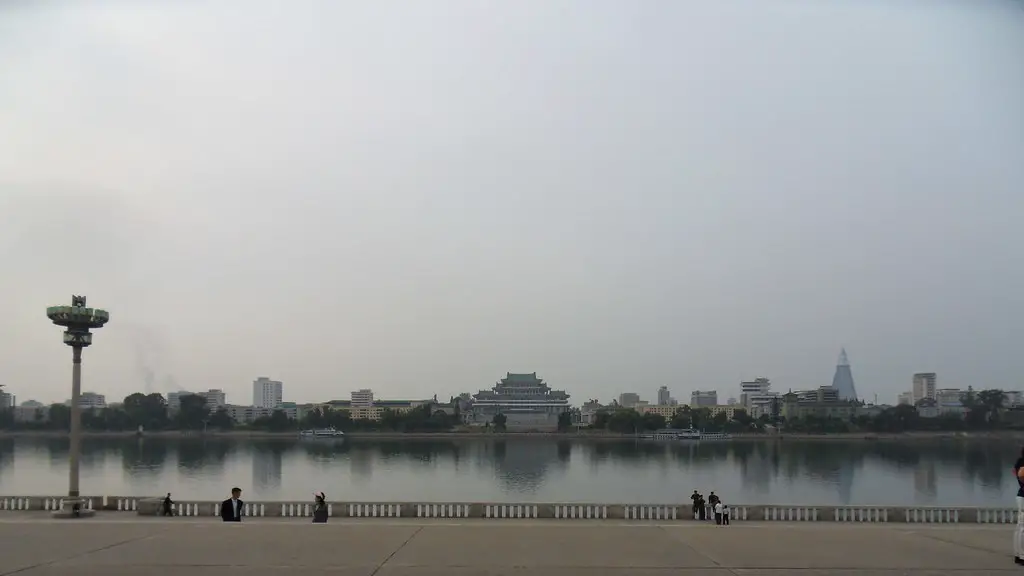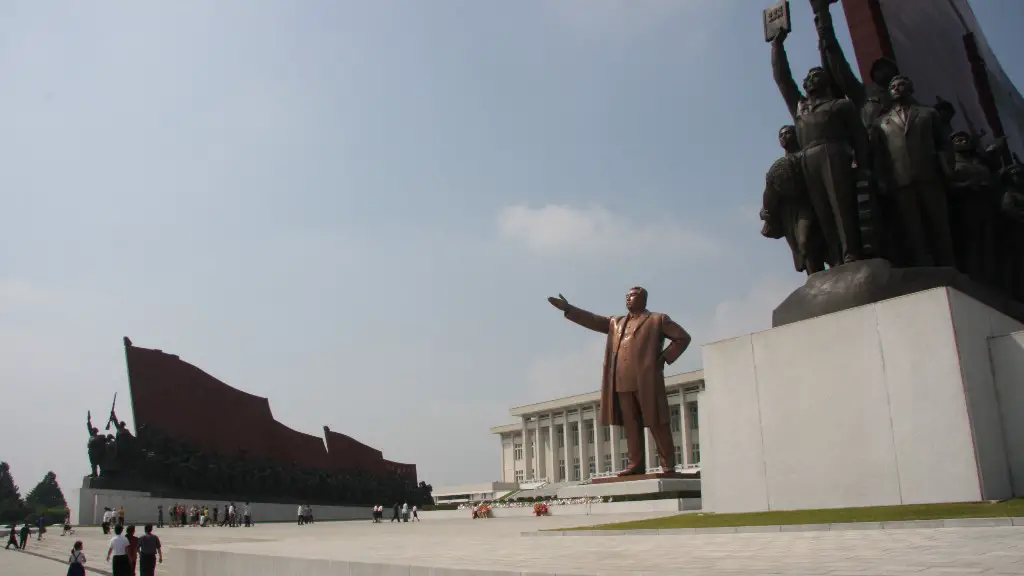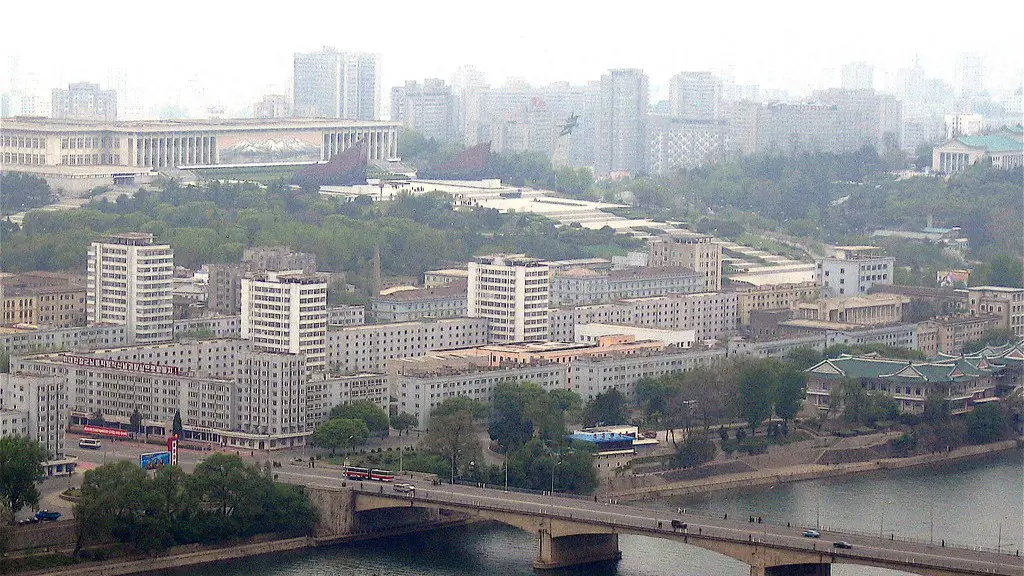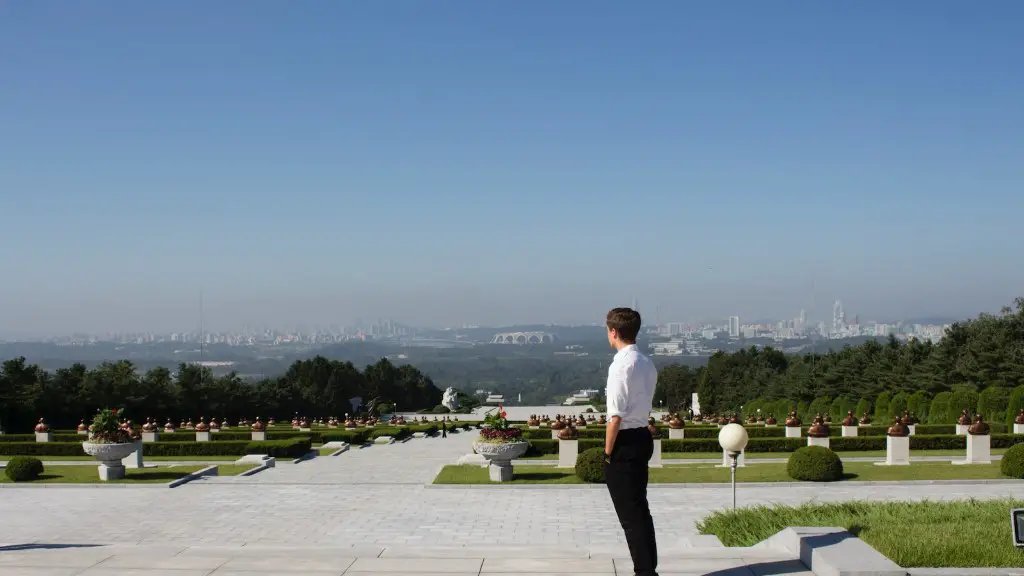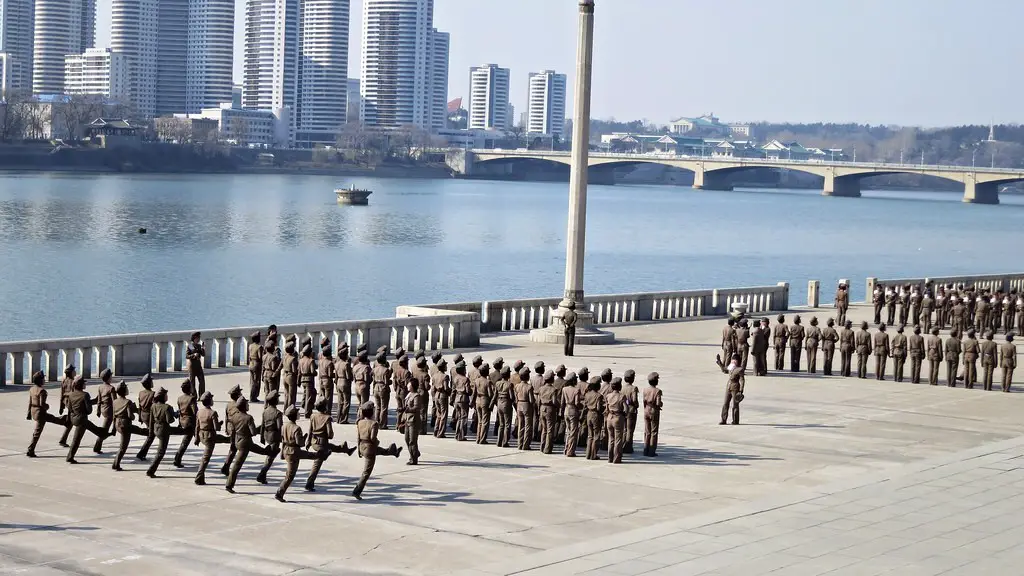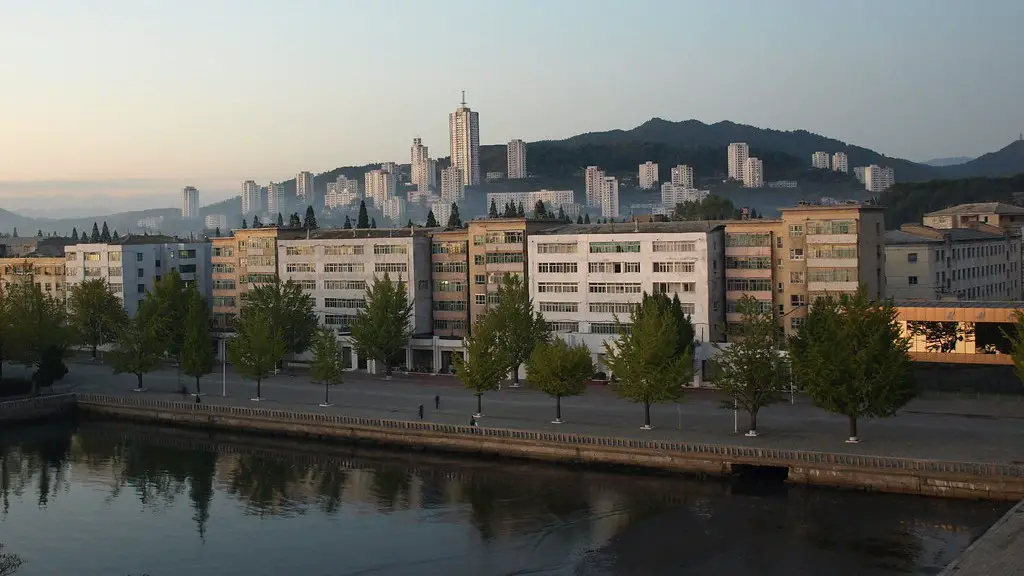The Democratic People’s Republic of Korea, better known as North Korea, is a socialist state that is today one of the most isolated and secretive countries in the world. The North Korean government believes that its leader, Kim Jong-un, is a divine figure who has been sent to lead the country and its people. The government promotes a cult of personality around Kim Jong-un, and demands that the population worship him as a god. This belief is reflected in the way that the North Korean people view their leader; as a god-like figure who is to be obeyed without question.
The North Korean government believes that their leader, Kim Jong-un, is a divine figure who was born to lead the country. They believe that he is a gifted leader and strategist, and that he cares deeply for the people of North Korea.
How do North Koreans refer to their leader?
Kim Jong-un is the current Supreme Leader of North Korea, a position he has held since 2011. He is also the Chairman of the Workers’ Party of Korea and the Commander-in-Chief of the Korean People’s Army. In North Korean media and publications, he is most commonly referred to as “Respected Comrade Kim Jong-un”, “Respected Comrade General Secretary”, or “Marshal”.
North Korea’s political system is built upon the principle of centralization. The constitution defines North Korea as “a dictatorship of people’s democracy” under the leadership of the Workers’ Party of Korea (WPK), which is given legal supremacy over other political parties. The WPK is the only party allowed to hold nationwide party congresses and elects the country’s top leader, the Supreme People’s Assembly, and the Central Committee.
What does North Korea believe in
From what we can tell, North Korea is mostly irreligious, with the main religions being Shamanism and Chondoism. There are small communities of Buddhists and Christians, but not much is known about them. It’s possible that religion isn’t as important to North Koreans as it is to other people around the world.
If you’re traveling to North Korea, be aware that the country has strict laws about what you can bring into the country. It’s illegal to bring in religious, pornographic or political items. Declare all published material and electronic devices when you arrive.
How would you describe North Korea’s government?
The Democratic People’s Republic of Korea is a highly centralised totalitarian state that has been ruled by the same family for three generations. The country is cut off from the rest of the world and its people are kept in a state of fear and isolation.
Since the end of economic aid from the Soviet Union after its dissolution in 1991, North Korea has struggled to maintain its economy. The impractical ideological application of Stalinist policies in North Korea over years of economic slowdown in the 1980s and receding during the 1990s has led to the continued nominally uphold of Communism, but with a replacement of many key economic policies.
What freedoms does North Korea not have?
Freedom of movement is something that North Korean citizens are not able to enjoy. They are usually not able to freely travel around their own country, let alone travel to another country. Emigration and immigration are both strictly controlled by the government. This means that it is very difficult for North Koreans to leave their country or to move to another country.
The mass media in North Korea is controlled by the government and does not provide accurate information to the people. The media is censored and does not allow for freedom of speech or press. The government routinely disregards the rights of its people and seeks to mold information at its source.
Does North Korea have a child limit
The topic is North Korea’s population growth policy.
According to North Korean officials, the country is encouraging its citizens to have large families in order to boost the population. One Korean American scholar who visited the country in the early 1980s said that there are no birth control policies in place, and that parents are encouraged to have up to six children.
This policy appears to be in line with North Korea’s goal of increasing its population in order to create a larger pool of potential soldiers and workers. It is also likely that the government sees a growing population as a way to increase the country’s power and influence.
The Department of State continues to warn U.S. citizens not to travel to North Korea due to the serious risk of arrest and long-term detention. U.S. citizens in North Korea are at risk of arbitrary arrest and detention. North Korea does not recognize dual nationality, and U.S. citizens cannot rely on the protection of the U.S. government. Exercise increased caution if you choose to travel to North Korea.
What religion is not allowed in North Korea?
The North Korean constitution officially guarantees freedom of religion, but in reality this is not the case. Religions such as Christianity and Buddhism are not tolerated in North Korea, and people who practice these religions are often persecuted. Shamanism and Chondoism are the only two religions that are officially recognized by the North Korean government, but even these religions are not allowed to operate freely.
In North Korea, it is a criminal act to show disrespect to the country’s current and former leaders, Kim Jong-Il and Kim Il-Sung. Persons violating the laws of North Korea, even unknowingly, may be expelled, arrested, or imprisoned.
What is not allowed in Korea
The import of guns, narcotics, pornography, subversive material, treasonous material, and counterfeit goods is prohibited in Korea. Offenders will be subject to severe punishment under Korean law.
Common criminals convicted of crimes such as murder, robbery, rape, drug dealing, smuggling, piracy, vandalism, etc have also been reported to be executed, mostly by firing squad. This is usually done in order to discourage others from committing similar crimes.
When did North Korea become a dictatorship?
The United Nations General Assembly accepted the report of UNTCOK and declared the Republic of Korea to be the “only lawful government in Korea” on 12 December 1948. By 1949, North Korea was a full-fledged Communist state.
China and North Korea have a special relationship that is often considered to be very close. The two countries have a mutual aid and co-operation treaty, which is currently the only defense treaty either country has with any nation. This treaty helps to solidify the close relationship between the two countries.
Is North Korea a poor country
The North Korean economy is in a poor state due largely to the government’s complete control over all monetary exchanges. This lack of competition between businesses has caused the economy to remain stagnant, contributing to poverty in North Korea. The totalitarian regime’s poor governance is also to blame for the country’s economic woes. If the government can begin to liberalize the economy and allow for more competition, it may help to improve the lives of North Koreans.
The DPRK is one of the most isolated countries in the world, both culturally and economically. This isolation has led to widespread malnutrition and extreme poverty among the population. Every day, North Koreans go to work on farms, in factories, and in the capital city of Pyongyang. Despite the difficult conditions, they continue to work hard to support their families and their country.
Conclusion
North Korea believes that its leader is a divine being who is destined to rule the country. The leader is also believed to be infallible and anyone who challenges his authority is considered to be an enemy of the state.
The North Korean government believes that their leader is a god-like figure who can do no wrong. They believe that he is a powerful leader who will lead them to success and prosperity.
